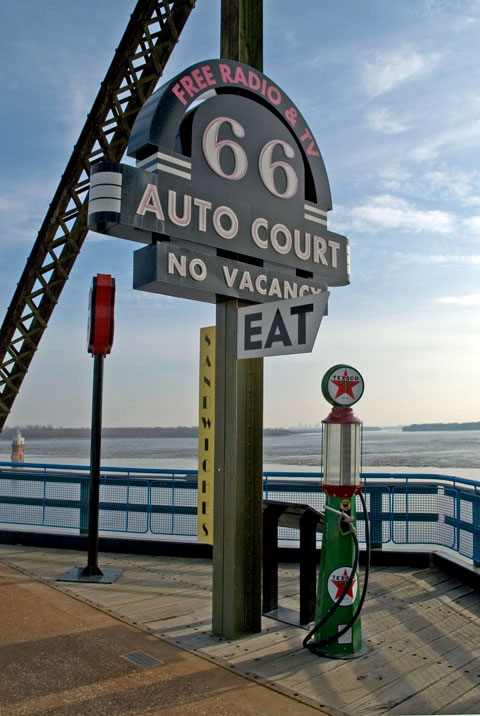MediaGirl wrote a well thought and extensively argued essay in response to another thoughtful essay written by Liza Sabatar at Daily Kos. Both were about a recent conference call with NARAL about a controversial NARAL sponsored ad against Supreme Court candidate John Roberts. In the ad, Roberts is accused of aiding those who would bomb abortion clinics, because, as part of his job, he wrote anti-abortion briefs.
About the NARAL members, Liza had this to say:
How can I say this without sounding too harsh? Well …. hmmmmmm … The leaders sounded maternalistic. The call came down to them defending the ad because not only do they know what they are doing; but because they’ve been doing it for so long, they should lead and we should follow: This is the deal : It is us and it is them.
We were supposed to take their words as gospel and go about banging away at our laptops. We were to blog rabidly, faithfully, obediently.
The timing on reading this was a bit uncanny, as I had just finished watching the movie Iron Jawed Angels: the true story of Lucy Burns, Alice Paul, and the fight for women’s suffrage back in the beginning of the last century. Burns and Page were also at odds with the leading women’s suffrage organization of the time (the National American Women’s Suffrage Association) and split off into a separate organization (the National Women’s Party), which supported more direct methods to work for the vote for women.
But I digress. To return to Liza and MediaGirl’s discussion, both seque into a strongly philisophical discussion of the nature of feminism, arguing whether it is post-modern/deconstructionist/post-structuralist, which is beyond this poor geek’s understanding of modern philosophy. What caught my interest the most, instead, was the writing at the end of MediaGirl’s post–when discussions focused on the fight for rights are sometimes seen as a splintering apart of the “progressive” movement.
MediaGirl quotes a comment Kos made in Liza’s post:
Here’s the thing — people may think I’m dismissive (and other male bloggers), but our problem isn’t with what these groups are fighting for. I think the Constitutional Amendment to enshrine privacy is brilliant.
Rather, it’s clear that all the progressive groups, and that includes the women’s stuff, are getting killed right now. We’re losing on multiple fronts because we’re fighting multiple battles. The right is a cohesive movement. They’re united. We’re divided. And hence we’re losing.
So criticism of these groups is taken as criticism of their goals, when really, it’s criticism of their ineffectiveness. We all want the same thing.
There was some digression into Kos, the person, which tends to happen in these discussions (women write about women’s issues, liberal male comments, discussion then changes to circle around liberal male’s comments), and Kos’ disingenuous I’m just a boy with a blog remarks were rather entertaining, but MediaGirl focuses in on what I think is the essential element in the discussion: that NARAL’s ad, and working for women’s rights (and gay rights for that matter), is seen as a betrayal of the Democratic Party.
But cityduck perceives the top problem with the left as being:
(1) Identity politics: This should be self-explanatory. The hispanics advocate for hispanic rights, the gays advocate for gay rights, the feminists advocate for women’s rights, etc., too often it seems that the advocacy is not for principles but for groups.
Setting aside the indictment of identity politics — that’s worthy of another long blog post, if not an entire blog — what the heck is this about “women’s rights” as being identity politics? We’re talking about equal rights here, and moves against women that have implications for everyone.
Back to the “maternalistic” rhetoric….stefanie76 had enough of it:
It’s probably just me … (1.00 / 3)
but I’m willing to bet this only got bumped up because Liza is willing to kiss ass as much as the bootlickers around here.
Choice has been a winning strategy for decades. It’s only losing because Democrats are moving away from it.
Note the 3 downratings on her comment, presumably for calling out the bootlickers. She makes an important point, though — The Democrats have abandoned their position, and then used their retreat as justification for the abandonment. It’s not a popular fact, but you see it all the time these days in the “Do you want to be right or do you want to win?” arguments.
(I’ve never understood the benefit of ‘rating’ systems for comments–they strike me as just another way to re-arrange the bodies in a major pile-on. )
This highlights a growing, and disappointing, move in the DNC to ‘compromise’ on issues like abortion and rights for gays: backing away from some of the support for abortion in the ranks of the party, as well as urging gays to be patient in regards to their rights. We are, rather frequently, reminded of how much ‘worse’ it can be if the other party wins. We are asked to think of the big picture, and the long-term: of winning now, to gain later.
Oddly enough, this isn’ t the first time that the DNC has encouraged women and other ‘political minorities’ to be patient. Back in the early 1900’s, women’s rights were tied into support for the Democratic party at the time, including support for Woodrow Wilson as President.
Burns and Page, though, refused to endorse Wilson because he had not followed through on a promise to bring about the vote for women. They so outraged the Democratic Party, which after all had counted on the women’s vote in those states where it was legal, that the Party hired counter-protestors to assure the populace that the rights of women were always on the minds of the DNC.
Not to be deterred, another method Burns and Paul devised to fight for women’s rights was based on tactics used in the suffrage movement in the UK. They started a silent protest out in front of the White House, the first of its kind practiced in the United States.
The women would take banners proclaiming their hopes, and anger, and would stand silently on the walk in front of the White House, on either side of the main entry gates. This vigil continued peacefully enough, and even earned sympathy, until the United States entered World War I. In the past women had given up their fight for suffrage during times of war, most particularly the Civil War, and the assumption was that women would do the same in these circumstances. After all, how could women distract the government at a time when good American boys were dying overseas?
This time, though, the women who continued this protest–several hundred strong–wouldn’t back down on the issue, and continued the silent protest.
The populace turned on the women protestors, accusing them of being traitors for not giving unquestioning loyalty to Wilson. The government arrested them on trumped up charges of obstructing traffic, and sentenced them to two months service in a working prison or ten dollars fine–expecting the women to pay the fine (and hopefully bankrupt the coffers of the organization). Instead, the women chose prison time, saying that to pay the fine would admit guilt and they were not guilty of anything but standing up for their rights. Over two hundred would end up serving sentences of several months duration in Occoquan, a work prison in Virginia.
By all accounts, Occoquan was a hell hole, and the women were demeaned and treated harshly, as if they were common criminals rather than political detainees. To protest the conditions in the prison, Paul went on a hunger strike and was eventually force fed. Others joined the strike and the publicity derived from their efforts and the treatment afforded them eventually forced Wilson into publicly leading the cause for an amendment granting women the right to vote–calling the move a needed “war measure”, to save face.
Wilson had no choice. To do otherwise, to ignore those so determined, would be political suicide for the Democratic Party.
By the by, I’m still voting Green.
(Pointer to discussion from Lauren: my number one source on all things feminist.)



